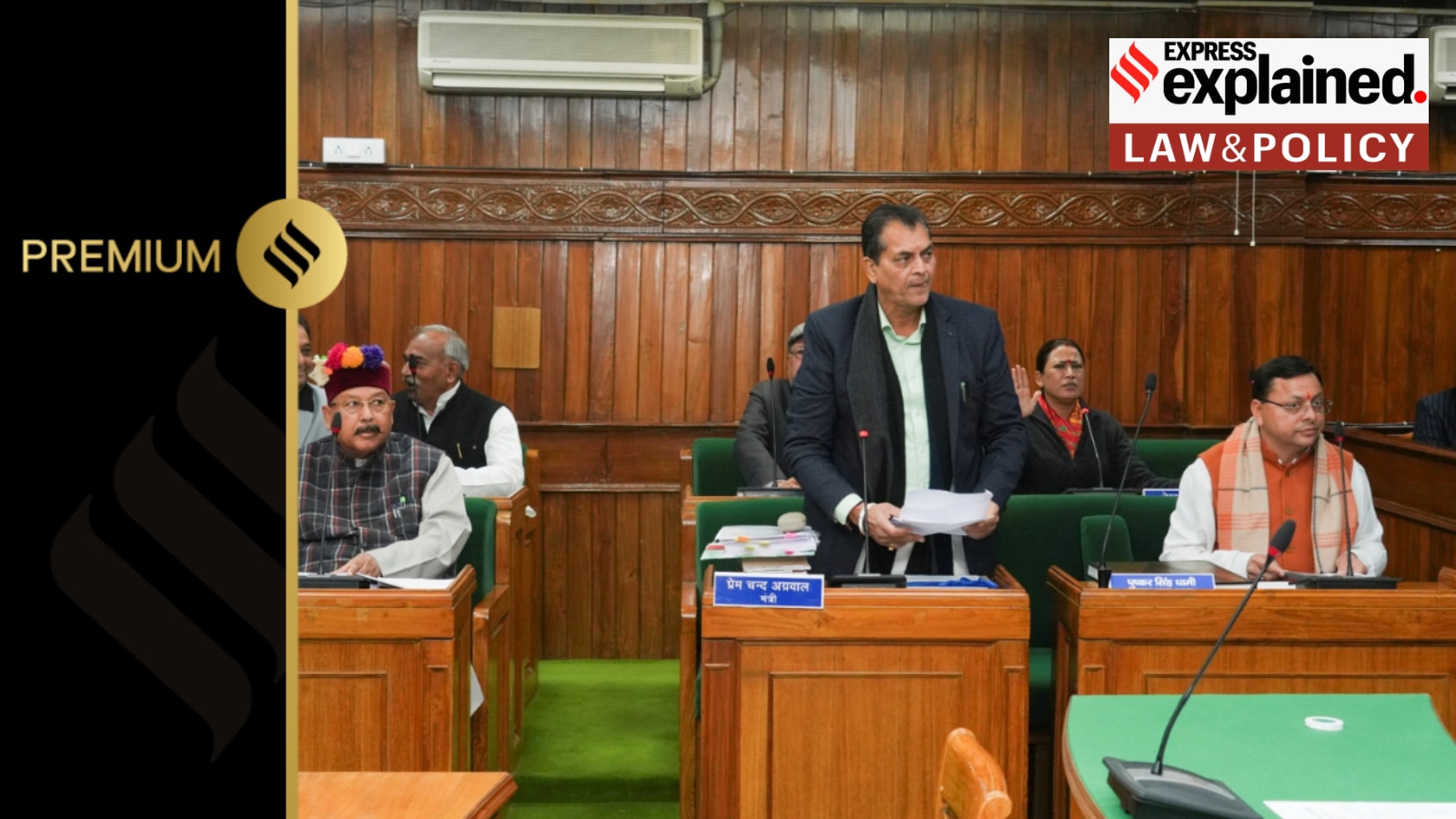The Uttarakhand government tabled the Uniform Civil Code (UCC) 2024 Bill in the Assembly on Tuesday. It makes important changes in areas such as marriage, divorce, and succession.
First, the proposed UCC brings the minimum age of marriage to 18 and 21 for Muslim women and men, in line with the Hindu Marriage Act, 1955 and the Special Marriage Act, 1954.

This issue has been debated in courts since Muslim law allows puberty (presumed at 13 years) as the age of marriage for girls. Since Protection of Children from Sexual Offences (POCSO) criminalised sexual activity between minors and the Prevention of Child Marriage Act prohibited marriage between minors, the Muslim age of marriage was at odds with these laws.
In December 2022, the National Commission for Women challenged in the Supreme Court the practice of allowing minors to get married. The case is pending before a bench led by Chief Justice of India D Y Chandrachud.
On succession, the nature of testamentary succession (through a will) and intestate succession (in the absence of a will) for Muslims will change drastically. Currently, Muslims may bequeath up to one-third of their property to anyone of their choosing through a will. The remaining property, or the entire property when there is no will, must then be divided in the manner provided in the Quran and the Hadith. This would ensure that the legal heirs are not entirely dispossessed. However, under the proposed UCC, in situations where the deceased person does leave a will behind, there is no restriction on how much of their property they can bequeath, or to whom.
The UCC draws heavily from the Indian Succession Act, 1925, retaining a majority of the provisions. In cases of intestate succession, the property will pass on to Class-1 heirs, who include the children, the widow and parents among a long list of others. In the absence of Class-1 heirs, the property will pass on to Class-2 heirs, who include siblings, nieces, nephews and grandparents, among others. If no such heir exists, anyone most closely related to the deceased person may receive the property.
The practices of bigamy or polygamy are outlawed in the UCC Bill. This is done by placing a condition for marriage under Section 4 of the Bill that neither party can have a living spouse at the time of their marriage.
Story continues below this ad
The proposed Code also criminalises certain Muslim marriage practices such as Iddat and Nikah Halala, without explicitly naming them.
Section 30 deals with the right of a person to remarry following a divorce. Here, the UCC provides that the right can be exercised without any other condition, such as marrying a third person before such marriage. This is a reference to the practice of halala under Muslim personal law. Section 32 then provides the punishment for anyone who “compels, abets or induces” someone to meet such conditions. Anyone convicted under Section 32 can be punished with imprisonment up to three years and also be liable to fine of Rs 1 lakh.
What changes for Hindus after Uttarakhand civil code?
The key change for Hindus under the proposed UCC involves succession.
First, the UCC takes away the distinction under Hindu law between ancestral and self-acquired property. Coparcenary rights under the Hindu Succession Act do not find mention in the UCC Bill.
Story continues below this ad
In a joint Hindu family governed by the Mitakshara school of law, a son/daughter; grandson/granddaughter; great-grandson/great-granddaughter are deemed joint owners of the property from the time of their birth. Each of them is a coparcener. Practically, what this means is that the father cannot sell or will away the joint family property on his own accord if his descendants are alive. The ancestral property is held jointly across four generations. However, in the case of self-acquired property, the father is free to dispose of it.
The other key change is the elevation of both parents — mother and father — as Class I heirs in case of intestate succession (when a person dies without making a will). Currently under Hindu law, in case of an intestate succession, the Class I legal heirs who will simultaneously inherit the property include children, the widow and mother and other lineal descendants of the deceased man. If no Class I heirs exist, then Class II heirs are considered, where the father is included. Now, Class I heirs would include the children, widow, and both the father and the mother.
This concept is in fact found in Shariat law. Hindu law does not include siblings as legal heirs, but inclusion of both parents could mean that a person’s property could travel to his siblings through his parents, cutting into the share of his children and widow.







































